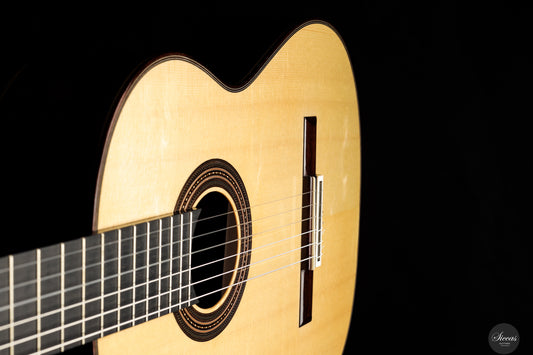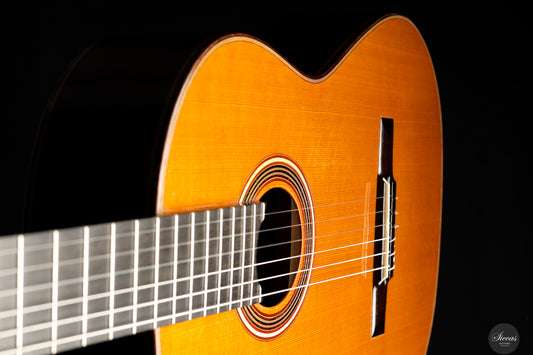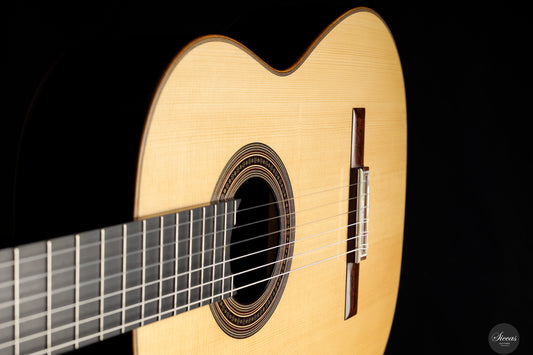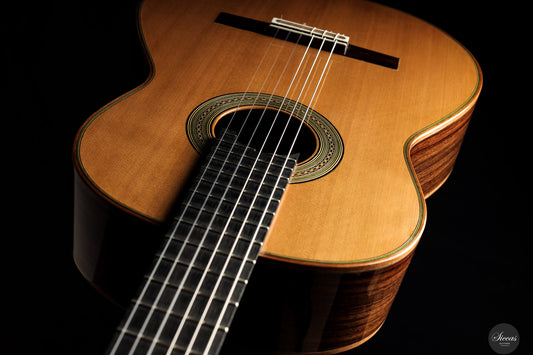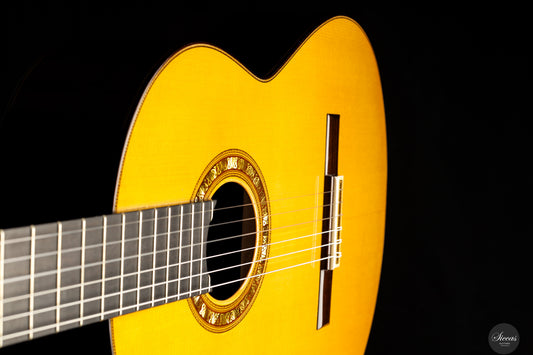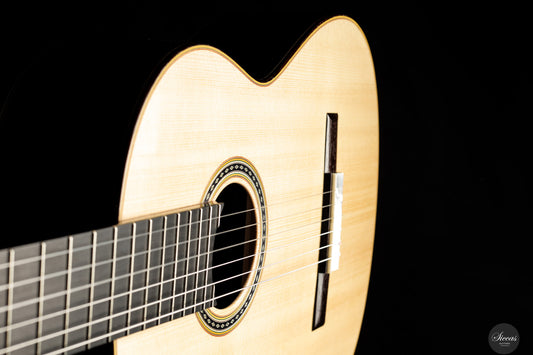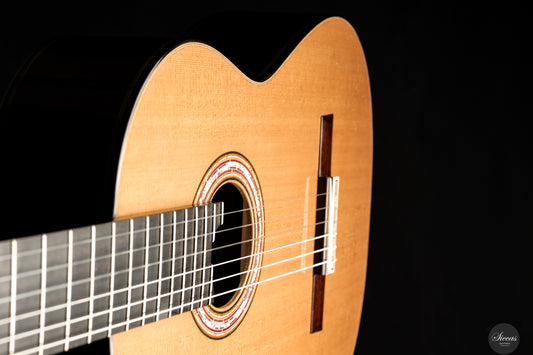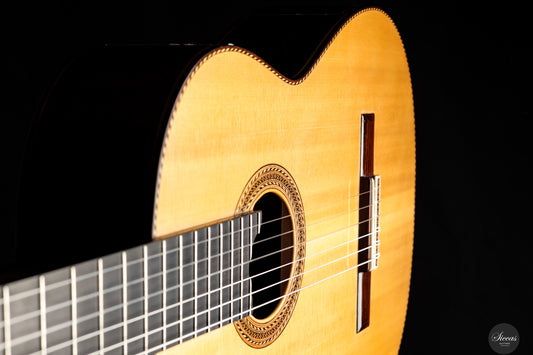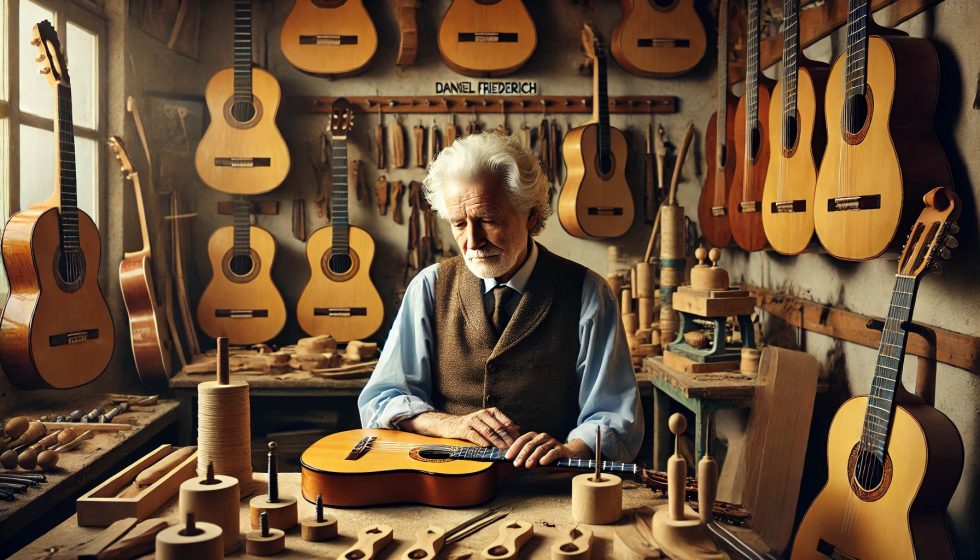
Daniel Friederich: Master Luthier and Pioneer of the Modern Classical Guitar
Daniel Friederich – The Master of Modern Guitar Making
Daniel Friederich is regarded as one of the most influential luthiers of the 20th and early 21st centuries. A visionary in his field, he set new standards in classical guitar construction and left a lasting legacy that continues to shape musicians and luthiers worldwide. His guitars, renowned for their warm, powerful tone and exceptional craftsmanship, are highly sought after by collectors and concert guitarists alike.
In this article, we explore the life, work, and musical legacy of Daniel Friederich – a man who shaped the sound of generations.
1. Early Years and Musical Foundation
Daniel Friederich was born on January 16, 1932, in Paris. He initially pursued a path as a passionate classical guitarist, and his deep musical understanding formed the foundation for his later work as a luthier. Due to health issues, however, he had to give up performing and turned instead to guitar making – driven by the desire to create the ideal sound he had long sought as a player.
This shift marked the beginning of a lifelong dedication to the art of lutherie.
2. The Influence of Robert Bouchet
A pivotal moment in Friederich's development was his encounter with legendary luthier Robert Bouchet. Although Friederich began as a self-taught builder, Bouchet became his mentor and introduced him to the refined traditions of French guitar making. From Bouchet, he learned not only technical precision but also an appreciation for the acoustic and artistic nuances of the craft.
Bouchet's influence is evident in many aspects of Friederich's work, though Friederich soon developed his own distinct style.
3. Sound and Innovation: The Friederich Guitar
Daniel Friederich fused traditional craftsmanship with modern innovation. One of his most significant contributions was the refinement of the fan-bracing system, originally developed by Antonio de Torres. Through careful experimentation, Friederich improved the top's responsiveness and enhanced projection, achieving a perfect balance between bass and treble frequencies.
He selected only the finest tonewoods – including German spruce, Western red cedar, and Indian rosewood – understanding their crucial role in shaping the guitar's resonance and character. Each Friederich guitar is a testament to detailed craftsmanship, from the rosette to the bridge.
4. A Unique Sound
The signature sound of a Friederich guitar is rich, balanced, and full of depth. Deep, resonant basses blend seamlessly with brilliant, clear trebles, creating a tone that excels in both concert halls and more intimate settings. His instruments offer outstanding dynamic range and tonal color, allowing performers to shape their music with nuance and emotion.
This expressiveness makes Friederich guitars ideal for a wide range of repertoire – from Baroque to contemporary works.
5. Played by the Greats
Daniel Friederich's guitars were played and praised by many of the world's most renowned classical guitarists, including John Williams, Julian Bream, and Roland Dyens. These artists admired his instruments not only for their sound quality but also for their effortless playability and emotional depth.
The fact that so many elite musicians chose Friederich guitars speaks volumes about their excellence and international reputation.
6. Handmade and Rare: Instruments for Eternity
Throughout his career, Daniel Friederich built approximately 800 guitars – each one handcrafted with meticulous attention to detail. His uncompromising standards made every instrument a masterpiece. The limited quantity and high demand have made Friederich guitars extremely valuable collector's items, often fetching high prices at auctions worldwide.
Owning a Friederich guitar means owning a piece of guitar-making history.
7. A Legacy for Generations
Daniel Friederich's influence on modern lutherie is profound. Although he did not formally train apprentices, his work inspired countless contemporary luthiers. His innovations, dedication to tone, and unparalleled craftsmanship set a new benchmark for classical guitar construction.
His legacy lives on – not only through his own guitars but through the next generation of builders influenced by his work.
Conclusion
Daniel Friederich was more than a luthier – he was an artist who revolutionized the world of classical guitar. His instruments, known for their unmatched tonal depth and precise construction, remain a gold standard in the world of concert guitars.
At Siccas Guitars, we regularly feature rare Daniel Friederich guitars – exceptional instruments for musicians, collectors, and lovers of fine classical guitars. Experience the sound of a master.



